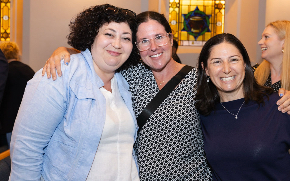Former hostage Noa Argamani one of TIME’s 100 most influential people
It’s been less than a year since Noa Argamani was pulled from the chaos of captivity, freed in a high-risk operation by Israeli forces after eight months in the clutches of Hamas.
The world first met her in a haunting video: a young woman screaming for help as she was dragged away on a motorbike from the Nova music festival on October 7, 2023, the day Hamas launched its brutal attack on Israel. That image became emblematic of the trauma Israelis endured. Now, Noa Argamani has returned to the public eye for a different reason: as one of Time Magazine’s 100 Most Influential People of 2025.
Her inclusion in the Leaders section of the annual list is no token gesture. Since her release, Argamani has become a resolute voice in the international campaign to free the remaining hostages still held in Gaza, including her partner, Avinatan Or. She has met with world leaders, spoken at high-profile forums, and never allowed the world to forget those still in peril. Her nomination for TIME 100 was written by Doug Emhoff, the husband of former U.S. Vice President Kamala Harris and the first Jewish Second Gentleman in American history. Emhoff, known for his advocacy against antisemitism, described Argamani as a “beacon of resilience” and praised her for transforming her suffering into an unwavering call for justice.
Argamani isn’t alone on this years’ TIME 100 list. In a year marked by rising antisemitism and increasing global attention on Jewish identity, the list featured a striking number of Jewish figures. These individuals hail from politics, entertainment, science, and business. Each was selected for a reason tied to both their public work and the personal convictions they bring to it.

Noa Argamani. Courtesy of the Hostages and Missing Families Forum.
Adrien Brody, recognized in the Artists section, was celebrated for his deeply affecting portrayal of a Holocaust survivor in The Brutalist, a role that earned him his second Oscar. TIME noted that Brody’s artistry is uniquely informed by his Jewish heritage and that his performances often carry the emotional weight of remembrance. His work this year, they said, reminded audiences that “memory is not passive; it’s a form of resistance.”
Scarlett Johansson, included among the Icons, was honoured not just for her continued success on screen but for her growing public engagement with her roots. After learning on the series Finding Your Roots that some of her ancestors died in the Warsaw Ghetto, Johansson began speaking more openly about her Jewish identity. TIME praised her evolution from movie star to meaning-maker, citing her support for Jewish cultural causes and her backing of socially conscious films.
Rashida Jones, daughter of Jewish actress Peggy Lipton and music legend Quincy Jones, was included in the Innovators section. TIME credited her with forging a unique path that bridges entertainment and activism, especially through upcoming projects exploring racial and religious identity. Whether in front of the camera or behind it, Jones has used her platform to tell stories that challenge assumptions and celebrate complexity.
Bobbi Brown, the pioneering makeup mogul, earned a spot in the Titans category for her latest reinvention. Long after revolutionizing the beauty world with her original brand, Brown returned with Jones Road Beauty, a clean cosmetics line rooted in transparency and authenticity. TIME emphasized how her long-standing pride in her Jewish features, famously embracing what she calls her “Jewish nose,” helped redefine beauty standards for a generation.
Claudia Sheinbaum, who made history last summer by becoming Mexico’s first female and first Jewish president, was listed among the Leaders. A former mayor of Mexico City and a trained scientist, Sheinbaum campaigned on environmental reform, gender equality, and transparency. TIME described her election as a seismic shift in Latin American politics and a beacon for inclusive leadership.
Mark Zuckerberg, featured in the Titans category, was a more complex inclusion. As CEO of Meta, he continues to wield immense influence over how billions of people communicate and consume information. TIME acknowledged both his technological reach and the controversies surrounding Meta’s content policies. Yet they also noted his increased openness about his Jewish identity and his philanthropic investments in Jewish education and safety initiatives.
Rounding out the list is Jonathan Greenblatt, CEO of the Anti-Defamation League, a tireless and often polarizing advocate against antisemitism. Placed in the Leaders category, Greenblatt was recognized for expanding the ADL’s mission into new territory: confronting hate in the digital space, influencing tech policy, and defending Jewish students on increasingly volatile college campuses. TIME described him as a voice that refuses to back down, even when the backlash is loud.
Together, these figures reflect the multifaceted impact of Jewish voices in a turbulent time. From red carpets and presidential palaces to tech boardrooms and legal battlefields, they have used their platforms not only to succeed but to speak out; against hate, for memory, and in service of progress.








